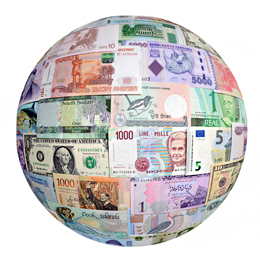 As I wrote last week, the ties between politics and economics are only growing stronger. Let’s look at some current examples of how the two are intersecting—and what this means for investors.
As I wrote last week, the ties between politics and economics are only growing stronger. Let’s look at some current examples of how the two are intersecting—and what this means for investors.
The uproar over corporate inversions. Corporate inversions, an unmistakable economic driver, have just been trumped by politics. Rather than address the root economic cause of these mergers—the discrepancy between U.S. corporate tax structures and those of the rest of the world—the government has decided to take administrative action to curb inversion deals.
The Russian experience. With political sanctions against Russia in place, deals are collapsing left and right. Exxon said last week that it will stop drilling in the Russian Arctic. Blackstone has announced it is pulling out of the country. European gas deals, which drive much of the continent’s economy, are in flux. Pipelines that supply Europe have been developed based on political considerations rather than economic ones. And the list goes on . . .
The euro. I’ve long said that the euro is a political rather than an economic creation, and the economic sacrifices made over the past several years to appease German politicians underscore that point. You could argue that politics is moving the other direction on this one, and you would be right. But, either way, economics wasn’t the deciding factor in the euro’s creation, nor will it be if the currency meets its demise.
Iran and the oil markets. Oil still drives much of the world economy, and by deliberately limiting supply (and running up prices), oil-rich countries can impose economic costs for political reasons. I’m not saying it’s unjustified, only that politics can wreak significant economic damage.
A retreat by Western companies. Over the past couple of decades, the triumph of free markets has led Western companies to reach into countries around the world—never mind the politics—and try to make a profit. Given the growth opportunities, and the perceived need of many governments for external investment, things more or less worked out, but that’s changing.
In an extreme example, Clorox has just announced that it’s pulling out of Venezuela due to government-mandated price freezes. China, too, has taken a more aggressive political stance toward Western companies in recent years, even as many of those firms haven’t seen the growth they expected.
Navigating a more complex investing landscape
While it's never been out of the picture, politics is moving back to the center of the investing equation. Corporate inversions will be the least of it here in the U.S.—foreign corporate cash is the big issue. The eurozone and the euro are approaching a political fault line with the rise of anti-Europe parties in every country. Finally, in deciding not to stimulate its economy to revive growth, China has signaled that it’s prioritizing political goals over economic ones.
This is not a new world, but it is a different one, and anyone making investments based on economics alone will be missing the full picture. Blackstone and Clorox can attest to that.


 Print
Print

